- Home
- Madeleine L'engle
A Ring of Endless Light
A Ring of Endless Light Read online
Table of Contents
Title Page
Introduction
One
Two
Three
Four
Five
Six
Seven
Eight
Nine
Ten
Eleven
Twelve
GOFISH - QUESTIONS FOR THE AUTHOR
READ THE ENTIRE - Austin Family Chronicles
Copyright Page
For Sandra Jordan
Introduction
"Who are you in this book?" we would constantly ask our grandmother, Madeleine L'Engle, about every book that she wrote. Her books have protagonists that many people can identify with, generation after generation, whether it is the brave and clever, gawky and frustrated Meg Murry, or the vulnerable and awkward, but at the same time, sensitive and intuitive Vicky Austin. Madeleine also strongly identified with her characters, and said many times that she was both Meg and Vicky. There was so much that was recognizable as her and her life in her stories, and we wanted to be able to map her fiction to her biography, thereby fixing and understanding her place, and by extension, ours, in the family and the wider world.
Most children want to be told stories about themselves. We were no different, and so, reading the Austin books was always a special thrill, because the narrative is peppered with incidents and details that also featured in family lore, like the adorable malapropisms of Rob Austin and Vicky's bicycle accident. The Austin family house in the quiet New England village of Thornhill (as described in Meet the Austins) is ever-present as a touchstone of their domestic peace, and is modeled on Crosswicks, a pre-Revolutionary War farmhouse in northwestern Connecticut where our grandparents and their children lived in the 1950s. The cross-country road trip in The Moon by Night copies the Franklin family itinerary of 1959, during which Madeleine started writing A Wrinkle in Time. In The Young Unicorns, the Austin kids unravel a mystery at the Cathedral of St. John the Divine, where our grandmother was the librarian and writer-in-residence for more than forty years.
There is enough similarity of detail in the books to have caused us some confusion: If our grandmother is Vicky, how can she have the bicycle accident that left our own mother with a Y-shaped scar on her chin? If some of the details confounded our sense of reality, we never questioned the underlying truth of the characters and our grandmother's relationship to them. If Madeleine were Vicky, then we felt understood. Because we were Vicky, too.
People would joke that Meet the Austins could have been called Meet the Franklins (Madeleine's married name), and yet, we knew that Vicky and the Austins couldn't be a simple translation of our grandmother's life, because of the family tension and pain surrounding these books about this family. Madeleine's own children were often shocked at how their own lives were appropriated and rewritten for publication, and felt judged against this very happy and practically perfect family. The line between fact and fiction can sometimes be blurry for writers, and the temptation to inscribe a certain version of and authority on events is strong.
All of Madeleine's writing, fiction and nonfiction, was an example of how all narrative is fiction, and all fiction can be true. She wrote and lectured extensively on the difference between truth and fact, arguing that it is through story that we human beings approach the truth, not through facts, which can only get us so far. As her granddaughters, this was both liberating and confusing, but we happily suspended our disbelief, and some of our best-loved stories are ones that are culled from her real life, from her days in the theater, from her early years with our grandfather, and the mysterious decade of the fifties.
The five books that are now presented as The Austin Family Chronicles were written over a period of thirty years. A prolific writer of more than sixty books in a variety of genres, Madeleine created a web of characters that grew, changed, and surprised her. As we re-read these books over our lifetime, what strike us are the very different responses we have to this family. At eleven, we thrilled to the references to things that our mother or aunt or uncle would confirm were true. At seventeen, we were cynical about the blur between fact and fiction, and thought we could read our grandmother as if she were a book. In our mature adulthood, we recognize how rich and complicated our grandmother was, and that fact can be the springboard for fiction, and fiction can inform who we are and tell us about ourselves.
Charlotte Jones Voiklis and Lena Roy
March, 2008
One
I saw him for the first time at the funeral.
He stood beside my elder brother, John, and they both had closed, clenched jaws and angry eyes. He was as tall as John, and I could see that he was as full of grief over Commander Rodney's death as the rest of us.
I didn't know who he was, but I liked him.
Because he was standing with John, I assumed that he, too, had a summer job at the Marine Biology Station, which was housed in half of the Coast Guard headquarters.
It was a strange place and a strange time to see somebody and know that I wanted to meet him, to call him by name. But there was something about him that struck me as--to use an old-fashioned word--trustworthy; and that's important in an untrustworthy world where death can strike when you aren't looking.
This wasn't the first time that I'd come close to death, but it was the first time that I'd been involved in this part of it, this strange, terrible saying goodbye to someone you've loved.
I was sixteen (almost), even if not sweet, and I'd had my first proper kiss at fourteen, but I'd never before stood at an open grave, waiting for a pine box to be lowered into it.
The part at the church hadn't been so bad, maybe because it was in a familiar setting, the small white church on Seven Bay Island, the church we've been to every year of our lives when we've gone to visit our grandfather. It was a sad time, the time at the church, yet it was somehow beyond time, on the other side of time.
Commander Rodney had been our friend for ages. He was Mother and Daddy's age. And he'd died of a heart attack after saving the life of some dumb rich kid who'd gone out in his sailboat in complete disregard of storm warnings. The kid, whoever he was, wasn't at the funeral, and maybe that was a good thing, because I, for one, held him responsible for Commander Rodney's death. And if I felt that way, what did Mrs. Rodney and their kids think? No matter how often our doctor father said you could never be certain what caused a heart attack, and blaming someone was no help at all, I still felt that the capsized sailboat and the half-drowned kid had a lot to do with it.
My little brother, Rob, stood close by me. Commander Rodney had been his special friend, more Rob's friend even than Mother and Daddy's. Rob wasn't crying; he hadn't cried at all; but his face was white, the way it looks when he's going to get flu.
John was near me on my other side. He'd just finished his first year at M.I.T. and tended to think he was so much bigger than the rest of us he hardly condescended to talk to us. But he reached out and held my hand, firmly, something he hadn't done since we were kids. And on John's other side was this unknown young man with sea-grey eyes. Well. Like John, he probably thought he was much too important to talk to anybody who wasn't in college.
Behind them were the people from the Coast Guard and the Marine Biology Station. One man with thick-lensed spectacles and thinning hair was unabashedly wiping his eyes.
My little sister, Suzy, thirteen, going on thirty, was with our parents, near the Rodneys. Mrs. Rodney had her hand on Daddy's arm, as though she couldn't have stood up otherwise. Leo, the oldest, had his arm around her. His eyes were closed, as though to shut out the people and the coffin and the open hole. There was so much pain in him that I turned away and looked at the group from the Mari
ne Biology Station, and at the young man who had stepped forward so that he was just slightly in front of John, and I could look at him without being obvious. He was tall and thinnish--not skinny--and his hair was what Rob calls hair-colored hair, not quite brown, not quite blond, like mine. His eyes were open, and there was somehow light behind them, the way sometimes the light on the ocean seems to come from beneath the water, rather than just being reflected from above. He was standing in a relaxed manner, but a little muscle in his cheek was twitching just slightly, so he wasn't as easy as he seemed.
Looking at him and wondering about him was a good way to keep my mind off what was happening. Then he stepped back so that he was blocked by John, and I had to come into awareness again.
Grandfather stood at the edge of the open grave, dark earth piled up behind him. When we got to the cemetery there'd been a carpet-like thing of phony green grass over the earth, and Grandfather had said with quiet steel, "Take it away," and two of the Coast Guard men had silently removed it. I wondered fleetingly what Mr. Hanchett, the regular minister, would have done. Ever since Grandfather retired and moved to the Island he's taken the church for one month a year, July, so Mr. Hanchett could go on vacation, and that's why he was burying Commander Rodney. His prayer book was open in his hand, although he wasn't reading it. He looked as finely drawn and as beautiful as an El Greco painting, and it was Grandfather who made me want to weep.
"Wonder who'll be the next to go?" a woman behind us asked in a loud whisper. I shivered, the way you're supposed to if someone walks over the place where you're going to be buried.
Grandfather's voice was low, and yet it could have been heard a mile away, I thought. "You only are immortal, the creator and maker of mankind; and we are mortal, formed of the earth, and to earth we shall return. For so did you ordain when you created me, saying, 'You are dust, and to dust you shall return. ' All of us go down to the dust; yet even at the grave we make our song: Alleluia, alleluia, alleluia."
No one could miss the joy in Grandfather's voice as he said those alleluias, and his face was so alive, so alight, that I didn't hear what he was saying next. It was as though I had moved into a dream, and I woke up only when, gently but firmly, he pushed away one of the funeral-type men who was handing him a vial of dirt. It was obvious he was making the funeral people feel frustrated, rejecting their plastic grass and their plastic dirt. He was emphasizing the fact that Commander Rodney's death was real, but this reality was less terrible than plastic pretense.
I looked at the rich, dark brown of the piled earth, and there, hovering over it, was a gorgeous red-and-gold butterfly. Its wings moved delicately and it flew over the coffin and quivered in beauty as it hovered there. Grandfather saw it, too, because he stood still, looking, before he reached down and took a handful of earth and threw it onto the coffin, which had been lowered into the grave. "Earth to earth," he said, "ashes to ashes, dust to dust." The butterfly still hovered. And the words which followed seemed to me to have more to do with the butterfly than with what he had just said. "The Lord bless him and keep him, the Lord make his face to shine upon him and be gracious unto him, the Lord lift up his countenance upon him, and give him peace."
What did those radiant words mean, after the ashes-to-ashes and dust-to-dust stuff? What did it mean to me, and to my family, who were friends of the man who was being committed to the dark earth? What did it mean to his wife, and to his kids?
Slowly, gracefully, the butterfly flew off and was lost in the dappled shadows of the trees.
I looked from the butterfly to Leo Rodney. I've always thought of Leo as a slob and wiped off his kisses (which certainly didn't count as real ones), and I didn't much like him now, but that was his father in that box there, that box that was going to be covered with earth, not plastic, but real earth, which grass could grow in and butterflies fly over. I looked at Leo and his face was all splotchy as though he had cried and cried, but he hadn't cried, and he needed to. I wasn't sure what anybody cried about, not with my grandfather saying those paradoxical, contradictory words.
And my grandfather was dying.
The woman's whisper stuck in my ears: "Wonder who'll be the next to go?"
Grandfather.
Unless some kind of unforeseen accident happened--as it had happened to Commander Rodney--my grandfather was likely to be the next one. He had leukemia.
And he was saying all those words as calmly as though he had all the answers about life and death and God and all the cosmic things. And Grandfather would be the first to say he doesn't.
Leo moved just then, calling my attention to him; and I remembered last year, when he was on a religious kick and was telling us exactly what God is like, Grandfather had said quietly--not rebukingly, just quietly--"As St. Augustine says: If you think you understand, it isn't God."
Looking at Leo, I wished he was still on his religious trip, when he thought he knew all the answers to everything.
John pulled my hand gently.
It was over. We were going to the Rodneys' to help out when the people of Seven Bay Island came to pay their respects. The house was full of casseroles and salads and pies and all the things people had been bringing in; Mrs. Rodney wouldn't have to cook a meal for weeks. It was a good thing they had a big freezer for all those funeral baked meats.
It wasn't too bad at the Rodneys' because I was kept busy serving people, washing dishes, and pouring vast quantities of iced tea. The Coast Guard and Marine Biology people drank the most--I must have filled the grey-eyed young man's glass half a dozen times.
The last time he smiled at me apologetically. "You're John Austin's sister, aren't you?"
"Yes. Vicky."
"I'm Adam Eddington."
So that was his name. A good solid name, Adam Eddington. I liked it.
"It's nice to meet you, Vicky," he said, "even under these circumstances."
"They're not the best." I stood there holding the pitcher of iced tea, which was wet and dripping. "But I don't think I've really taken it in yet. I keep expecting Commander Rodney to come walking in and ask us what we're all doing."
"It's rough. He wasn't that old."
"My father's age." I glimpsed Daddy talking to a cluster of people from the Marine Biology Station. Then I turned back to Adam.
He took a long swallow of tea, and looked at me over the glass. "You know when you cut yourself really badly, it doesn't hurt at all for a while. You don't feel anything. Death--our reaction to death--is sort of like that. You don't feel anything at all. And then later on you begin to hurt." He was speaking with a quiet conviction, as though experience had taught him what he was talking about. I wondered what had happened, who had died, to make him speak like that. He continued, less tensely, "He was a really great guy. He knocked himself out to be nice to me, treating me like an intelligent human being and not a mere flunky. I'll miss him. And I've known him only a few weeks."
I shifted the pitcher from one hand to the other. "I haven't begun to hurt yet, but I guess I will. You've been at the station for a while?"
"I got out of school the end of May, and I was lucky enough to be able to start here the first of June. It's great having John come to work in the lab--I was the only one under forty."
"Are you working with starfish, too?"
"Some. But mostly I have an independent project going, on dolphins."
"I love dolphins! Though I've never met one personally, only at Sea World."
"Would you like to meet one?"
"Would I ever!" I almost dropped the pitcher.
"I think maybe I can arrange that. You strike me as being a dolphiny person."
That might not sound like much of a compliment, but I knew that it was.
"We have one dolphin who's going to pup in a week or ten days. Ever see a dolphin baby?"
"No."
"I'll introduce you to one, then. And--hey, are you good at listening?"
Before I could answer, Dr. Nora Zand, John's immediate boss, dropped a
hand on Adam's shoulder and told him it was time to go. And I saw that the crowd was thinning out, and then we were leaving, too.
Leo took my hand. "Vicky, I wish you didn't have to go."
Leo's hand always felt clammy, and now it was cold as well. "I'm sorry." I tried not to pull my hand away. I was filled with pain for Leo, but I'd much rather have had Adam holding my hand. "I think your mother wants to be alone with just you kids for a while."
"Can I come see you tomorrow?"
"Sure."
I managed not to turn away when he kissed me, not a passionate sort of kiss, but I didn't want any kind of kiss from Leo. And yet I ached so for him I found myself giving him a quick hug before we left. When Leo started hurting, he was going to hurt much more than we were, or than Adam Eddington.
We got into the station wagon and drove across the Island and up the hill to Grandfather's, and there, parked in front of the house, was a hearse.
Well, I had hearses on my mind.
It wasn't a hearse; it was an enormous, brand-new, black station wagon. And a tall, pale young man with black hair was lounging elegantly against it.
"Good grief," John exploded. "It's Zachary Grey. Just who we don't need."
Daddy murmured, "His timing has always been unerringly inconvenient."
I hadn't seen Zachary for a year. I'd never expected to see Zachary again. After a summer during which he sort of pursued me, he'd dropped completely out of sight, far off in California, with girls a lot more glamorous than I could ever hope to be. But I didn't think of him as some kind of moral leper, the way the rest of the family did. And it was Zach who'd given me that first real kiss. My cheeks felt hot and my hands felt icy cold.
He waved. "Hi, Austins, long time no see." He grinned at me. "Zach's back."
"Hi," I said stupidly, and hoped my flushed cheeks didn't show.
"Come for a ride?"
Still stupidly, like a ten-year-old kid, I just shook my head.
Daddy said, "Zachary, we've just come from a funeral. We're all tired, and sad, and we need to be alone. Could you come another time?"
"Certainly, sir," Zachary replied swiftly and courteously. "Tomorrow, Vicky-O?"

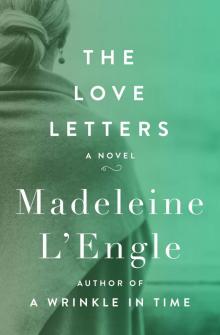 Love Letters
Love Letters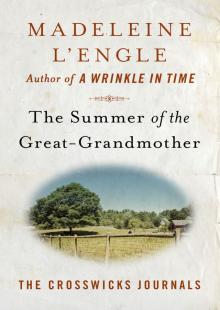 The Summer of the Great-Grandmother
The Summer of the Great-Grandmother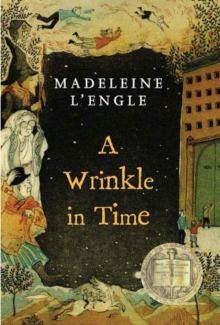 A Wrinkle in Time
A Wrinkle in Time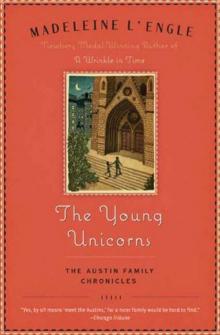 The Young Unicorns
The Young Unicorns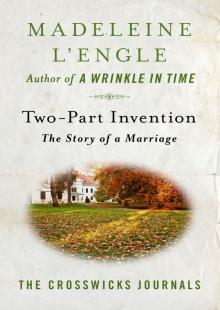 Two-Part Invention: The Story of a Marriage
Two-Part Invention: The Story of a Marriage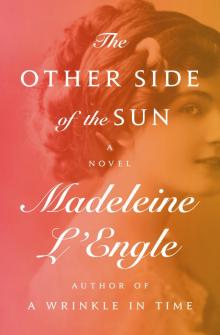 The Other Side of the Sun
The Other Side of the Sun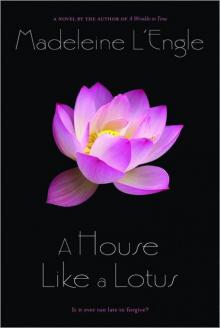 A House Like a Lotus
A House Like a Lotus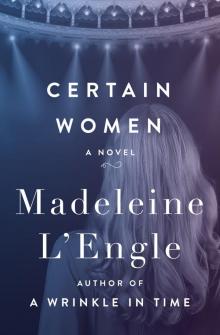 Certain Women
Certain Women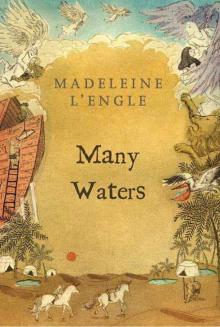 Many Waters
Many Waters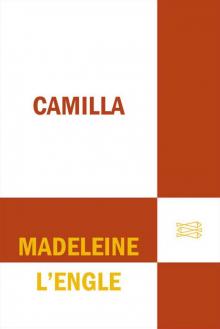 Camilla
Camilla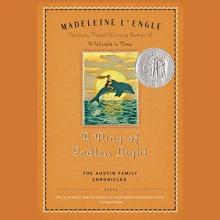 A Ring of Endless Light
A Ring of Endless Light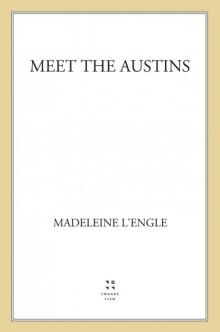 Meet the Austins
Meet the Austins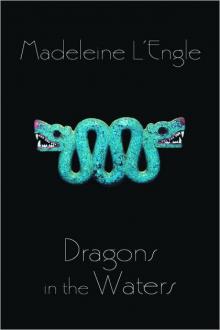 Dragons in the Waters
Dragons in the Waters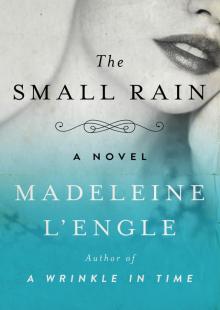 The Small Rain
The Small Rain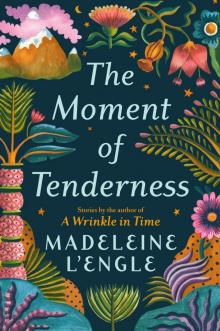 The Moment of Tenderness
The Moment of Tenderness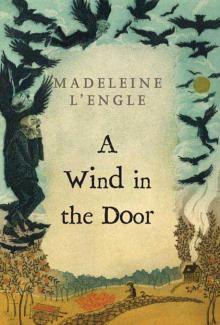 A Wind in the Door
A Wind in the Door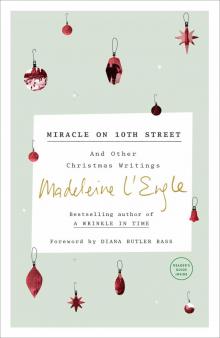 Miracle on 10th Street
Miracle on 10th Street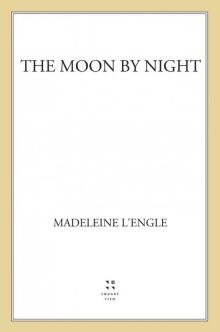 The Moon by Night
The Moon by Night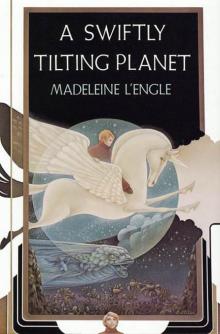 A Swiftly Tilting Planet
A Swiftly Tilting Planet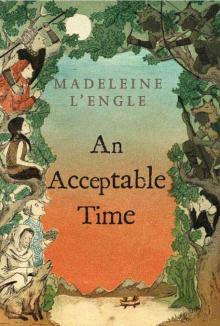 An Acceptable Time
An Acceptable Time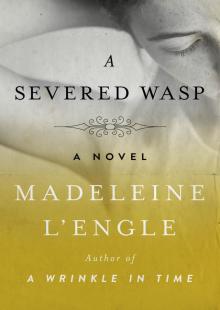 A Severed Wasp
A Severed Wasp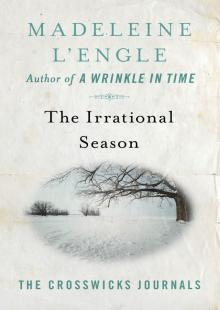 The Irrational Season
The Irrational Season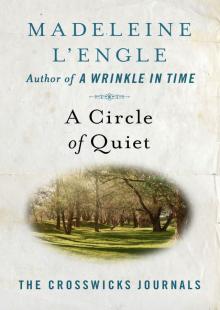 A Circle of Quiet
A Circle of Quiet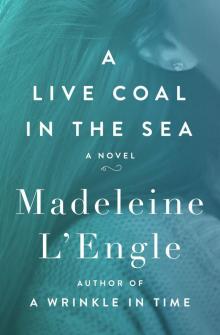 A Live Coal in the Sea
A Live Coal in the Sea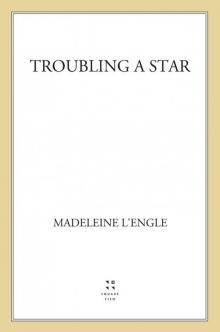 Troubling a Star
Troubling a Star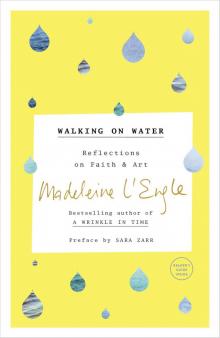 Walking on Water: Reflections on Faith and Art
Walking on Water: Reflections on Faith and Art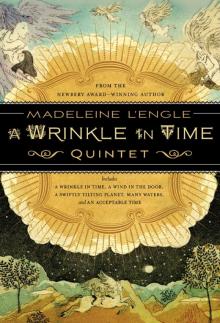 A Wrinkle in Time Quintet
A Wrinkle in Time Quintet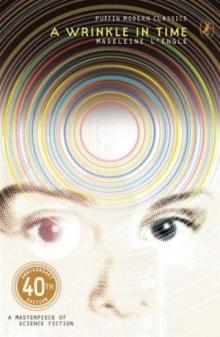 Wrinkle in Time
Wrinkle in Time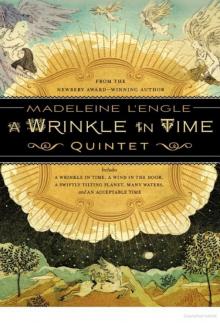 The Wrinkle in Time Quintet
The Wrinkle in Time Quintet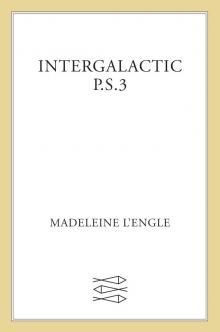 Intergalactic P.S. 3
Intergalactic P.S. 3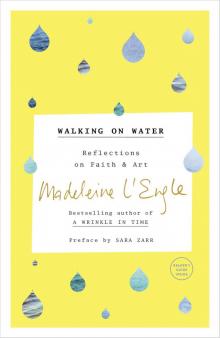 Walking on Water
Walking on Water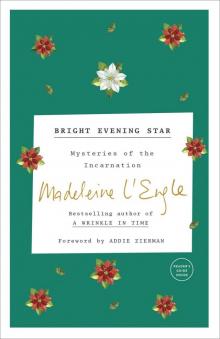 Bright Evening Star
Bright Evening Star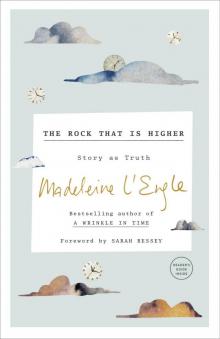 The Rock That Is Higher
The Rock That Is Higher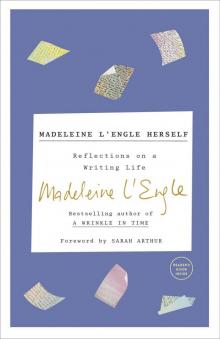 Madeleine L'Engle Herself
Madeleine L'Engle Herself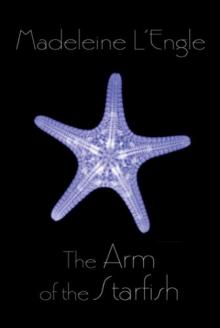 The Arm of the Starfish
The Arm of the Starfish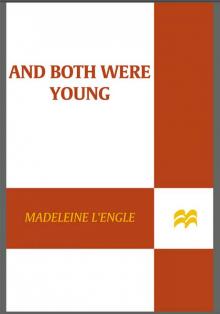 And Both Were Young
And Both Were Young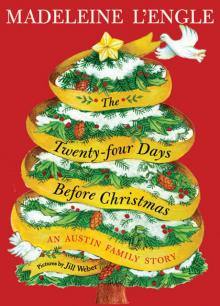 The Twenty-four Days Before Christmas
The Twenty-four Days Before Christmas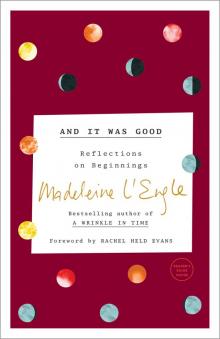 And It Was Good
And It Was Good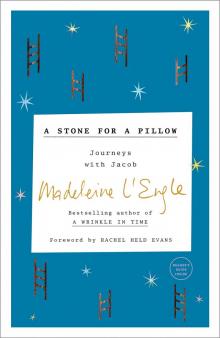 A Stone for a Pillow
A Stone for a Pillow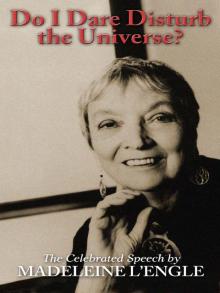 Do I Dare Disturb the Universe?
Do I Dare Disturb the Universe?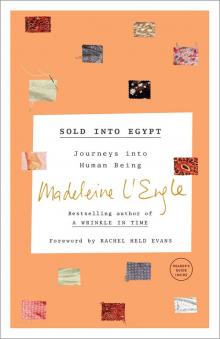 Sold into Egypt
Sold into Egypt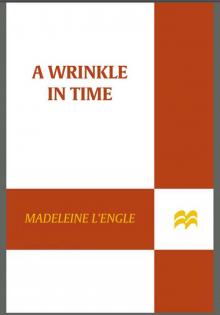 A Wrinkle in Time (Madeleine L'Engle's Time Quintet)
A Wrinkle in Time (Madeleine L'Engle's Time Quintet)